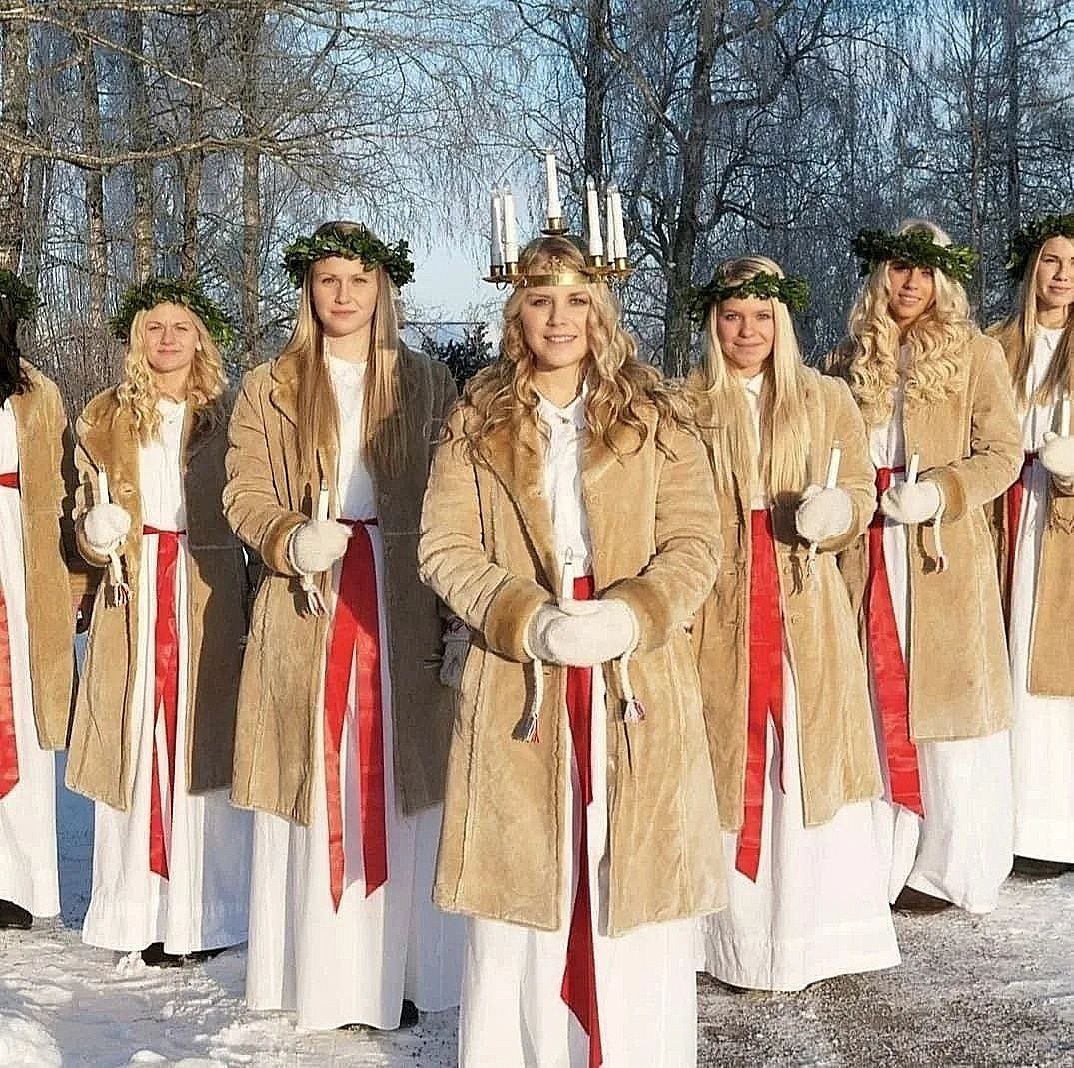❄️ Today on December 13th we celebrate a very old tradition here in Scandinavia originally called Ljóssi or “Lucia/Lussi” as many call it today. At the darkest time of the year here in our pre-Christian North (The Winter Solstice) we had a tradition that was linked to light, darkness and the course of the year. ‘Ljóssi’ means ‘the light’ and symbolize the bringer of light in the dark. The tradition was also often called “Mother Night”, and is today celebrated just a few days before the wheel is turning – The Winter Solstice.
❄️ Lucia is a tradition held to welcome the return of the light, and is a symbol of a light-bringing female. Earlier back in the days, women of each tribe climbed the highest hill or mountain in the area dressed in white and light to watch the horizon for a sign of the light returning. This has its original origins from the pagan light-goddesses Frigg, Freja and Sól – Sunna, and the red belt around the waist of Lucia symbolize fertility.
❄️ During the 12th and 13th centuries when the christianization of Scandinavia started to take place “to civilize the Northmen”, the christians made Ljóssi (Lucia) into a witch and a monster, it’s unfortunately the folklore version that we sometimes can read about. But that didn’t work for our heathen Scandinavian ancestors, we kept celebrating and therefore the church instead made her into a saint and claimed she was an all christian tradition. A saint that Rome has never acknowledged, and not even recognised by the Vatican as legit. So therefore, the tradition today is a mixture of both Pagan and Christian beliefs.
❄️ The celebration of Lucia is nowadays the most common in Sweden, because here the pre-christian belifes held out the longest. But today the tradition is celebrated in all of Scandinavia – all from schools to workplaces! To get through this dark midwinter night, both humans and cattle required extra food which was used to be called “lusse-bit”. According to a pre-Christian Swedish tradition, a chosen woman walked around and knocked on the door to offer “lusse-bread” as a sign that we would now move towards brighter times. It is also from here that the Swedish traditional pastry ‘Lussekatter’ comes from. The pastry is originally shaped in the traditional way like year wheels, solarcrosses and gold carts. Ljóssi has been with us since the dawn of time, and she has always brought new hope and light in our darkest of times 🕯

